What Is Kosher salt?
- By Amy Dong
- Updated Oct. 11, 2022
Do you know the differences between all the types of salt at the grocery store? What is kosher salt? Should you use kosher salt vs. table salt? This guide will answer all of these questions, helping you decide when you should use various salts.
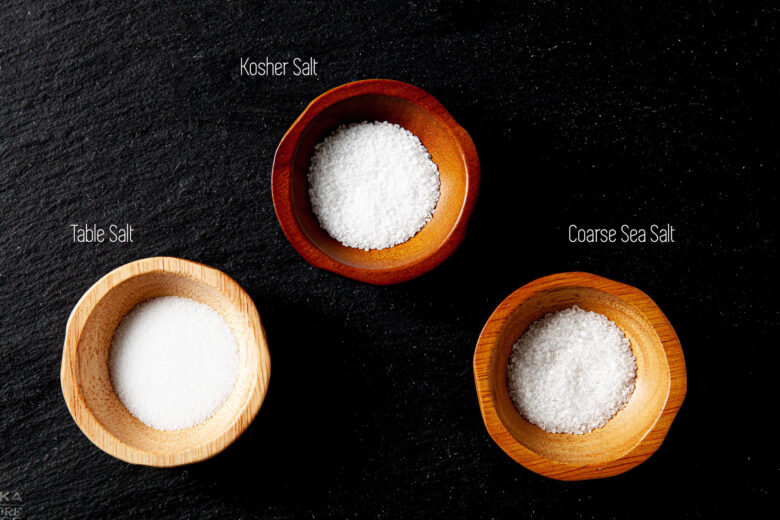
In This Article
This post may contain affiliate links, at no additional cost to you.
What Is Kosher Salt?
Kosher salt is the most widely-used type of salt that chefs and experienced home cooks choose. Made from sea salt, it’s popular for its affordability, easy access, and versatility in almost any dinner recipe , side dish, or other savory recipes.
It’s important to note that the word kosher is rather misleading. Kosher food describes anything “fit or proper as it relates to Jewish dietary law.” One type of salt isn’t more or less kosher than another – all salt is a mineral, so it is always kosher.
The term kosher-ing would be more appropriate because the use of the word actually refers to the method of treating meat with coarse salt and thus make the meat kosher.
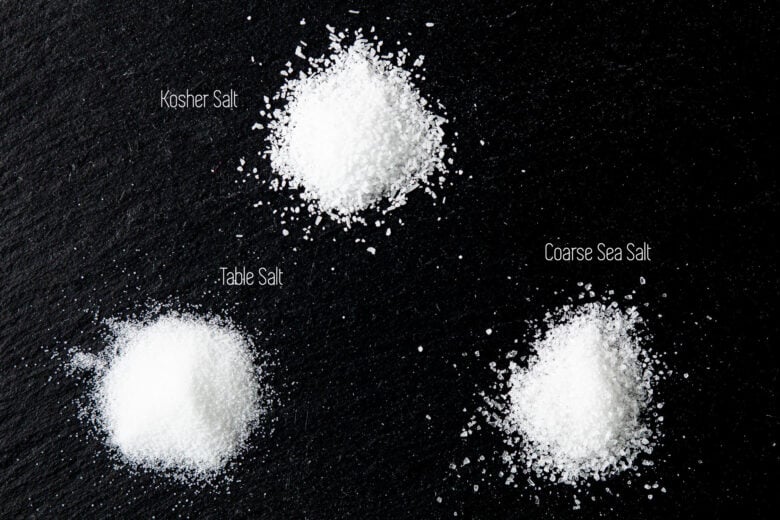
What’s Special About Kosher Salt?
Table salt is extremely fine and easily dissolves into foods, making it the perfect choice for brining meats. Other salts, such as certain coarse sea salts, may be too coarse to dissolve well. Kosher salt the perfect consistency for a dry rub for bbq sriracha ribs, as it’s in between the texture of table salt and coarse sea salt.
We often get asked the question: why use kosher salt? Essentially, kosher salt crystals are larger than table salt crystals. Because of table salt’s smaller grain size, there’s more salt by volume in a teaspoon of table salt than in a teaspoon of kosher salt. Thus, it’s much easier to over-salt when using table salt. The measurement of one does not equal the measurement of the other.
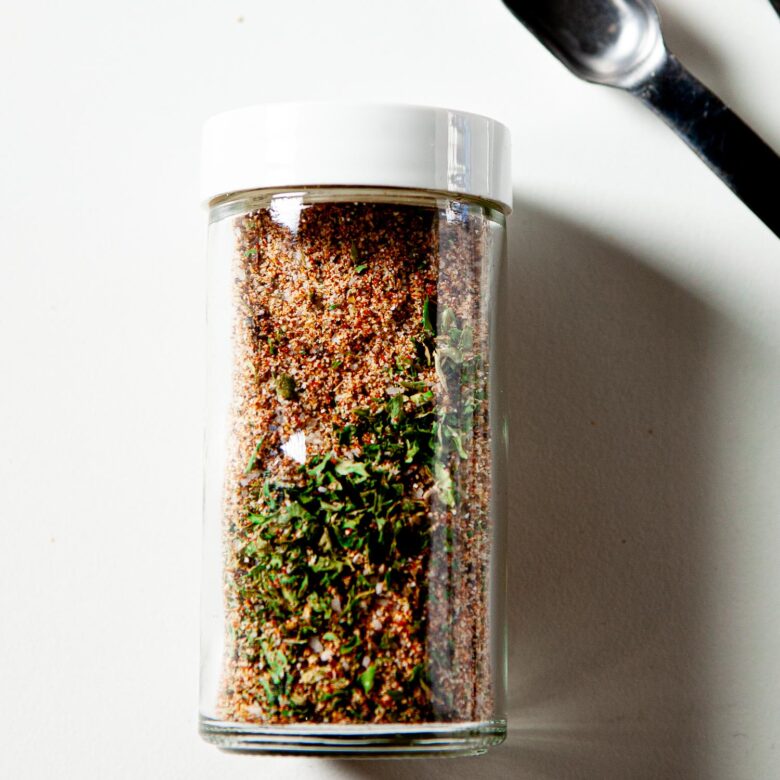
How To Use Kosher Salt
There are four main ways kosher salt is commonly used. The distinct size of the salt grains makes kosher salt perfect for these purposes:
Cleaning
The coarse grains of kosher salt make them the ideal cleaning aid when trying to get stubborn food off cast-iron skillets after making something like a skillet chocolate chip cookie. When you heat kosher salt over a low flame, it will evaporate.
Dry Rub
Dry rubs are a fabulous way of infusing salt or sugar into the meat. Kosher salt is the perfect size to rub into meat. It’s also harder to over-salt your meats when you use kosher salt.
Margaritas
This salt is also the best type of salt to rub around the rim of your margarita glass before you pour up a pineapple mango margarita.
Cooking
It’s easy to grab and sprinkle on top of food, making it a top choice for chefs and home cooks. We use it for almost all of our Dinner Recipes in 30-Minutes (or less).
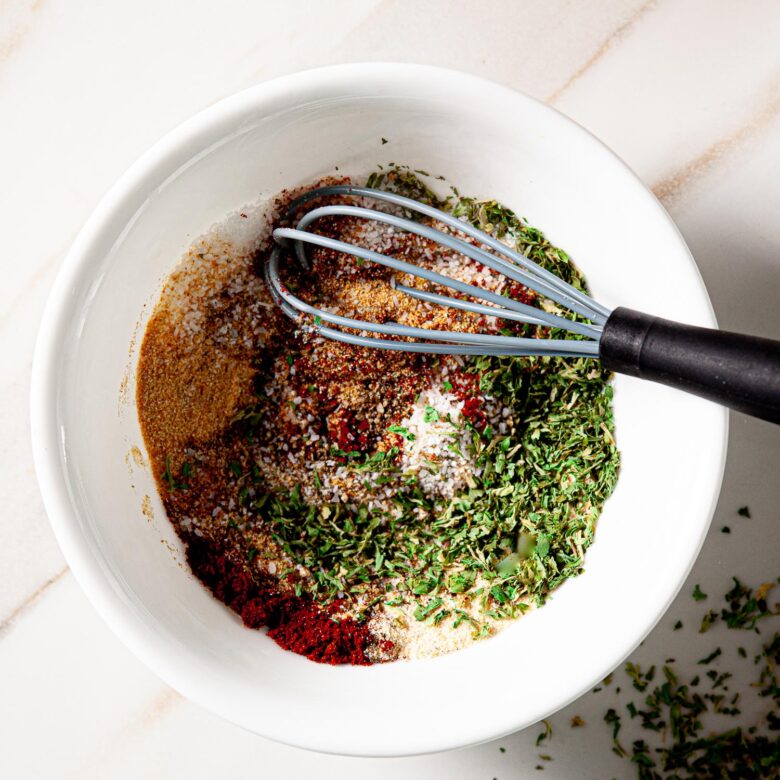
Kosher Salt vs Sea Salt
The biggest difference between kosher and sea salt is the size and shape of the grains. Kosher salt variety consists of large, flat, white grains. Sea salt has a large size, and it comes in a variety of different shapes. Sea salt can also vary in color, whereas kosher salt is distinctively white.
Additionally, sea salt is mostly composed of sodium chloride, but it also contains a bit of iodine. Kosher salt does not contain iodine.
Kosher Salt vs Table Salt
Table salt is also made up of sodium chloride, but the grains are ultra-fine. It’s the salt that you’ll typically find on tabletops inside salt shakers. Unless the packaging says otherwise, all table salts are iodized, which means they contain iodine.
Kosher salt crystals are much larger than the crystals of table salt and doesn’t contain iodine. A teaspoon of table salt is denser and will contain more sodium than a teaspoon of kosher salt, due to this volume difference. Thus, common measurements of kosher salt vs. table salt are not interchangeable.
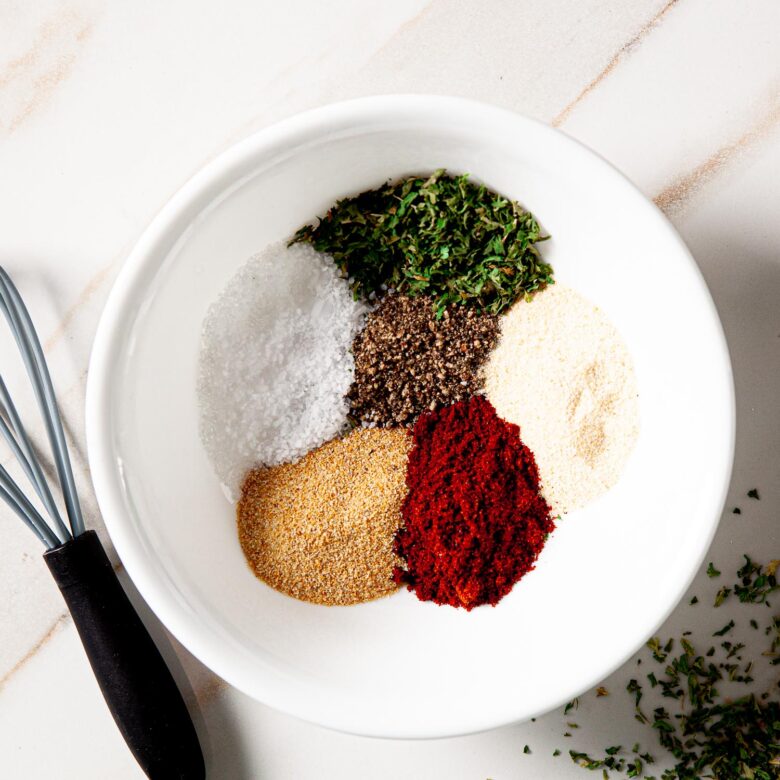
What Is Seasoned Salt
Seasoned salt is a type of seasoning you can buy premixed or make yourself. You’ll find it’s much tastier (and cheaper) when you blend your own seasoned salt. Use seasoned salt to quickly flavor baked potatoes, homemade fries, easy chicken dinners, pork chops, or anything else you cook.
We have a fantastic recipe for a perfectly balanced seasoned salt for you below. We hope you enjoy it – it’s one of our favorites to use on anything and everything.
Also Try Marinated Ribeye Steaks
Did you make this?
Please give us a rating and comment below. We love hearing from you!

Seasoned Salt
Ingredients
- 1 tsp garlic powder
- 1 tsp onion powder
- 1 tsp paprika
- 2 tsp kosher salt
- 2 tsp dried parsley
Instructions
- In a small bowl, combine all seasoning ingredients and mix well.
- Transfer seasoning into a clean spice jar with lid. Store airtight in a dark, dry space such as a spice pantry. Use within 3 months.
